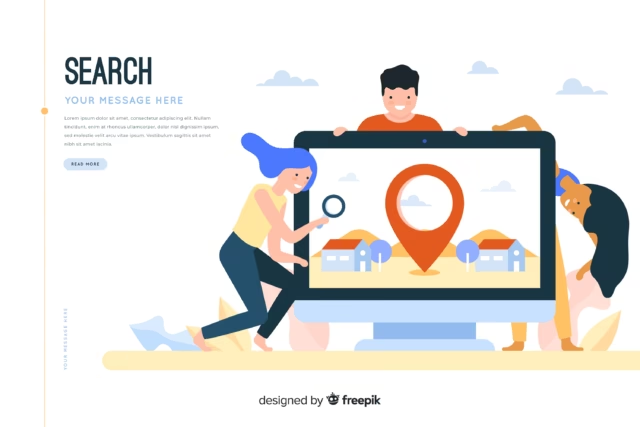Small businesses in Cape Coral face a competitive local market — from restaurants and contractors to boutiques and professional services. The good news? Combining smart local SEO tactics with AI tools gives you a practical advantage: better visibility in local search, more qualified leads, and a clearer path from “I’m interested” to “I’m calling.” Here’s a friendly, actionable guide to help you use both without getting overwhelmed.
Why local SEO still matters (and why AI makes it easier)
Local SEO helps search engines connect nearby customers with businesses that solve their problems. For a community-based company, appearing in map packs, local search results, and voice queries is pure gold. AI makes this process smarter and faster — from analyzing keyword opportunities to automating routine content tasks. Think of AI as a power tool for your local marketing toolbox, not a replacement for strategy.
Start with the basics: Google Business Profile and NAP consistency
First things first: claim and optimize your Google Business Profile. Use a clear business name, complete address, phone number (NAP), business hours, and categories. Add photos and an up-to-date description that highlights your services and differentiators.
Consistency matters. Make sure your NAP is identical across your website, social profiles, and directory listings. Inconsistent entries dilute your local ranking signals and confuse customers. Use an automated citation-builder or an AI-enabled local listing tool to scan and fix discrepancies quickly.
Use AI to find the right local keywords
Instead of guessing what customers type, let AI help you identify the exact phrases Cape Coral residents use. Look for terms with local intent like “near me,” neighborhood names, or service + city combos. AI tools can cluster long-tail phrases and rank them by opportunity — meaning you can target pages that are easier to win and more likely to convert.
If you want professional help, consider reaching out to a Cape Coral seo company that understands local search behavior and AI integration.
Create helpful local content (not salesy pages)
Local content wins when it answers real questions. Write blog posts, FAQs, and service pages that solve small problems: “How long does a screen enclosure repair take in Cape Coral?” or “What to check before hiring a local landscaper.” Use AI drafting tools to speed up outlines and research, then human-edit for voice and local relevance.
Include local signals on the page: neighborhood names, landmarks, local events, and customer stories. These cues tell search engines your content is relevant to nearby searchers and help you build trust with the community.
Optimize for maps, schema, and voice search
Map visibility is essential. Encourage customers to leave reviews — a steady flow of recent, authentic feedback improves your local rankings and click-through rates.
Add LocalBusiness schema markup to your site so search engines can easily parse your address, hours, services, and review ratings. Many content management systems support plugins that generate schema automatically; AI code assistants can help validate the JSON-LD.
Voice search is growing, especially on mobile. Optimize for conversational queries and featured-snippet-style answers. Short, direct responses to FAQs increase the chance your business will be read aloud by a virtual assistant.
Use AI for smarter outreach and reputation management
AI tools can monitor mentions, analyze sentiment, and draft polite review responses. When reviewers leave praise, respond promptly and personally — this builds trust and keeps the conversation visible. For negative feedback, a thoughtful reply that offers to fix the issue demonstrates care and can salvage relationships.
For outreach, AI can help identify local websites and community blogs for guest posts or sponsorships. Local backlinks and citation consistency remain strong relevance signals; use AI to scale the research, then do the human relationship-building.
Track the right metrics, not vanity numbers
Instead of obsessing over raw traffic, watch metrics tied to real business outcomes: phone calls from Google, direction requests, appointment bookings, and conversions from local landing pages. AI-driven dashboards can consolidate data from Google Business Profile, Google Analytics, and call-tracking systems so you see what’s working.
Quick checklist to get started this month
- Claim and fully optimize your Google Business Profile.
- Run a NAP scan and fix listing inconsistencies.
- Use AI keyword tools to identify 5–10 local, high-opportunity phrases.
- Publish one local-focused blog post and add schema markup.
- Set up review monitoring and respond to all new reviews within 48 hours.
- Track calls, clicks for directions, and booking conversions.
Final thought: balance automation with local authenticity
AI accelerates research, content production, and monitoring, but local SEO wins are built on human things — community involvement, consistent service quality, and honest customer care. Use AI to free up time for those activities. If you’d like help turning these steps into a tailored plan, Upton Technology Groups can work with your business to blend AI tools and local SEO tactics that fit your goals and budget.







